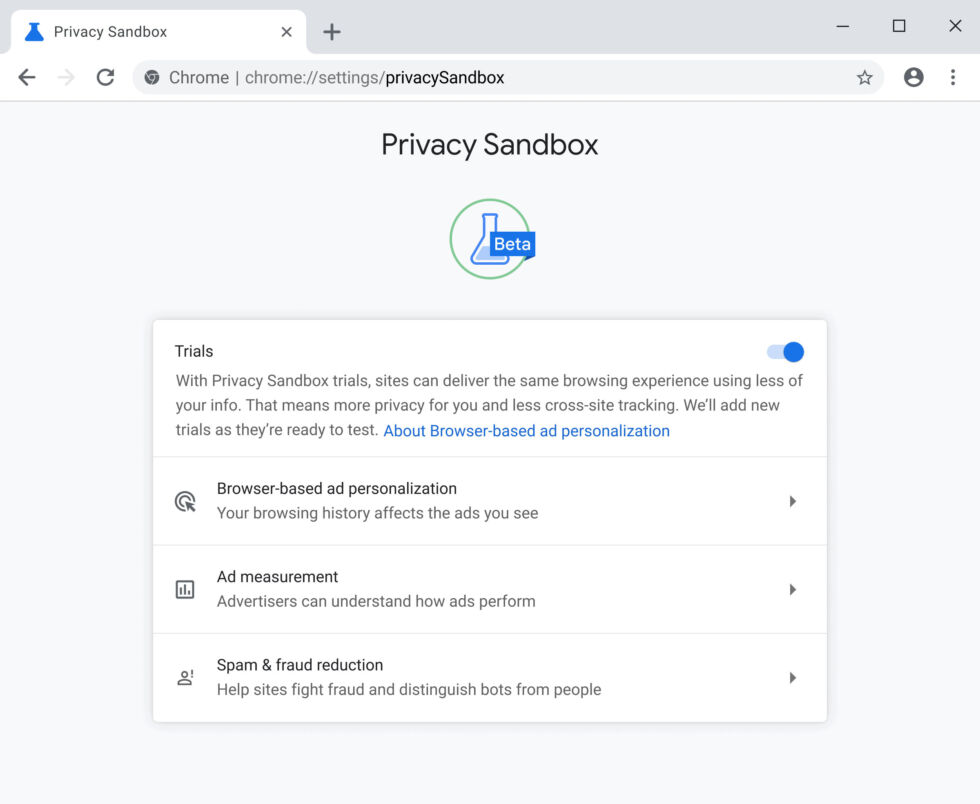
Chrome’s browser competitors Safari and Firefox have both been blocking third-party tracking cookies used by advertisers, by default, for over two years now. Google, the world’s largest advertising company, totally wants to match its competition and reduce user tracking; it will just take a little longer to do it. Google’s latest blog post details the second delay to the shutdown of third-party tracking cookies. Google says it will now support the tracking method until “the second half of 2024.”
Google does around $200 billion per year in advertising revenue, so the company stands to lose a lot if it suddenly hobbles web tracking. Google’s stated position is that it refuses to match the competition until it builds an alternative behavior-tracking system directly into Chrome; the company calls this system the “Privacy Sandbox.”
Google has floated a few different tracking methods so far. First there was FLoC (Federated Learning of Cohorts), which saw widespread opposition from the Electronic Frontier Foundation and other privacy advocates. Then Google moved on to the “Topics” API, which is currently in testing.

Google explains the delay by saying, “The most consistent feedback we’ve received is the need for more time to evaluate and test the new Privacy Sandbox technologies before deprecating third-party cookies in Chrome.” Presumably, Google is talking about feedback from competing advertisers, not users.
Google is using its position as the biggest browser vendor and web advertiser to change the way web advertising works, and that has naturally attracted the attention of some regulators. Google says it has been in communication with the UK’s Competition and Markets Authority (CMA) while it designs this platform and that the delay for testing “aligns with our commitment to the CMA to ensure that the Privacy Sandbox provides effective, privacy-preserving technologies and the industry has sufficient time to adopt these new solutions.”
Google’s new timeline shows the “Topics API” tracking system exiting the testing phase and launching to the general public in Q3 2023. Once the new tracking system is up and running, the third-party cookie phaseout would happen around Q3 2024, or four years after Apple and Mozilla started blocking cookies.
https://arstechnica.com/?p=1869935

